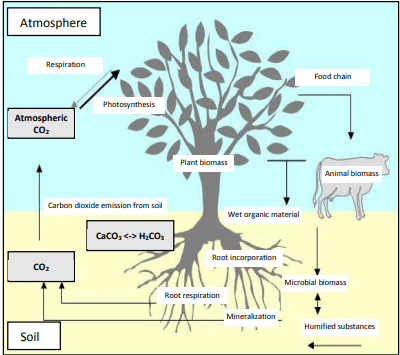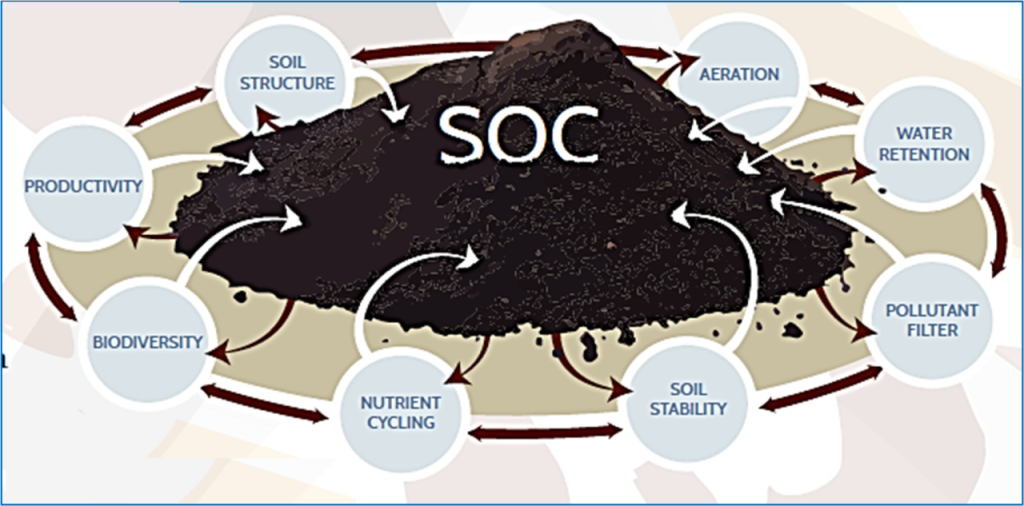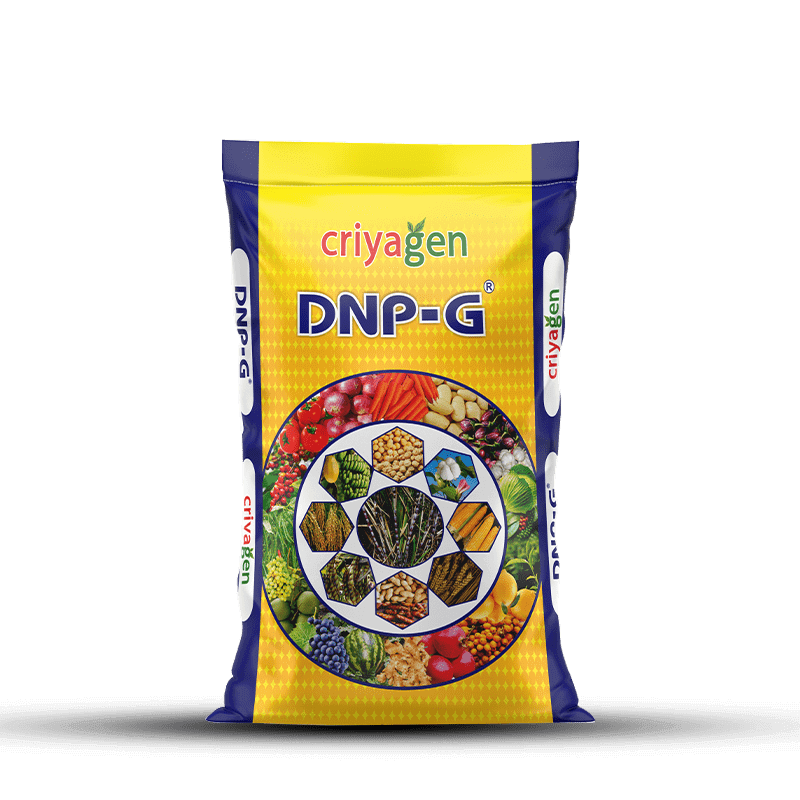According to the National Rainfed Area Authority (NRAA) 2022, the Soil Organic Carbon (SOC) content in India has reduced by 70% in the past 70 years. Declining SOC results in poor-quality food produced from the soils. What is the minimum organic carbon that should be in our soils? Our Indian soils should contain a minimum 0.5-0.75% organic carbon for healthy plants and yield.

Have you ever checked the organic carbon in your fields? Because soil organic carbon plays a very important role in crop production. If you lack organic carbon in your soil, then I have a solution for your soil. Before that, we need to look into organic carbon and its role.
Usually, the use of organic fertilzers plays a significant role in sustainable agriculture and in improving soil health. They are easily available at a low cost and also very easy to apply in fields. Crop yield increases by 10–25% with the increased use of organic fertilizers.

What is Soil Organic Carbon?
Soil Organic Carbon (SOC) is a major contributor to overall soil health, agriculture, climate change and food solutions. It is a natural energy storage, derived from soil organic matter, and considered a highly valued earth biopolymer.
Did you know agriculture also plays a role in the carbon cycle?
When we see agriculture’s crucial role in the carbon cycle. Carbon is critical to soil function and productivity and is a main component and contributor to healthy soil conditions.
Agricultural practices can influence both the amount and composition of soil organic carbon and therefore the soil’s physical, biological, and chemical condition, which collectively define soil health. Farm practices that affect carbon thus impact agricultural productivity, resilience (the soil’s ability to deal with weather extremes), and the carbon cycle itself.

Importance of Soil Organic Carbon
While the agricultural sector has the ability to impact the carbon cycle on a large scale, often through the release of carbon, farmers have an interest in retaining and increasing soil organic carbon for individual fields because soil and yield tend to improve with increased soil organic carbon levels.
Higher soil organic carbon promotes soil structure, or tilth, meaning there is greater physical stability. This improves soil aeration (oxygen in the soil) and water drainage, and retention, and reduces the risk of erosion and nutrient leaching.
Soil organic carbon is also important to the chemical composition and biological productivity, including the fertility and nutrient-holding capacity of a field. As carbon in the soil increases, carbon is “sequestered”, and the risk of loss of other nutrients through erosion and leaching is reduced.
An increase in soil organic carbon typically results in a more stable carbon cycle and enhanced overall agricultural productivity.

Along with the organic carbon we also need to know about amino acids for soil health
What are Amino Acids?
Amino acids are organic compounds composed primarily of carbon, oxygen, hydrogen, and nitrogen. These essential elements form the building blocks for proteins, which are the basic components required for living cells to exist.
Amino acids: the essential nutrient for soil and plant health
Amino acids also serve as a vital food source for the untold billions of microbes (e.g., small organisms) found in the soil. The carbon found in amino acids is one of the primary energy sources for these tiny soil microbes, which metabolise the carbon to continue building their populations.
So, when you include these elements in your soil, you will get a happy crop. Then, which organic manure to choose ? Don’t worry; as I mentioned above, I have a solution to ensure the presence of organic carbon and amino acids in your soils. I recommend Criyagen DNP as an organic manure supplement. It adds organic carbon, amino acids, and AIMS (Agriculturally Important Microorganisms).

DNP: A Solution for Soil Organic Carbon
Criyagen DNP is a unique organic manure consisting of organic carbon, amino acids, organic boosters, trace amounts of essential minerals, and effective AIMS (Agriculturally Important Microorganisms). It is intended to provide the most comprehensive crop nutrition, which improves the physico-chemical and biological properties of the soil ecosystem while enhancing crop productivity.
What is the benefit of using this?
The benefits of using Criyagen DNP include increasing yield by 20-25%, reducing the use of inorganic fertilizers by 20%, improving the physical, chemical, and biological properties of the soil, protecting the crop from soil-borne fungal diseases, and providing a higher yield and better quality of the produce. The recommended dosage of Criyagen DNP is 2 bags/acre for short-duration crops and 3-4 bags/acre for long-duration crops.
Method of application
DNP is applied as a soil application
The method of application involves applying 50-100 kg of Criyagen DNP per acre at the time of planting along with other fertilizers for the first application and applying 50 kg of Criyagen DNP per acre at 45-125 days after planting along with other fertilizers for the second application. Criyagen DNP is suitable for all crops.
In conclusion, soil carbon management is an important strategy for improving soil quality, increasing crop yields, and reducing soil loss. Capturing carbon in the soil helps improve soil health and productivity, and stabilise the global carbon cycle, benefiting agricultural production. You can add this carbon to soil by using Criyagen DNP for your crops, resulting in a plentiful harvest with great soil health.
Know how Trichoderma can improve yield organically, along with fighting pests and diseases.